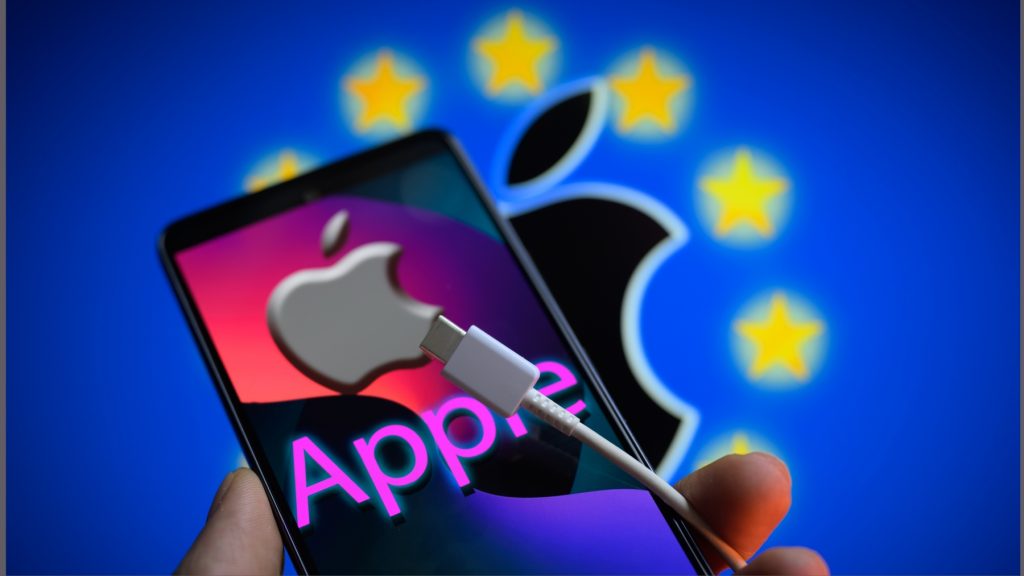
On the 5th of November, the EU antitrust movement imposed its first penalty on Apple under the Digital Markets Act (DMA), pushing further regulatory pressure on major tech firms for anti-competitive practices.
The Apple EU antitrust watchdog is focusing on the DMA, new legislation aimed at keeping fair competition alive, specifically targeting large platforms with dominant positions in areas such as online search, social media, and app stores. The DMA is designed to prevent these platforms from strangling small competitors, ensuring more openness in the digital marketplace.
Recently, Apple was fined after an investigation into its alleged anti-competitive conduct concerning its App Store ecosystem. The DMA places gatekeepers like Apple under strict rules to ensure open access for third-party developers. The probe addresses policies in the App Store, which have long been considered restrictive.
According to a report by Bloomberg, the fine is expected to be substantial, setting a precedent for other tech giants and pushing for Apple DMA compliance plan as the EU enforces the DMA.
Pressures by EU Antitrust on Apple and Other Tech Giants Mount
The EU antitrust Apple scrutiny has intensified, marking a shift in regulatory pressure on technology companies. Beyond the fine levied in recent months, Apple may face further penalties under the DMA. This follows a $2 million (€1.8 billion) fine imposed for alleged anti-competitive conduct linked with Spotify. In June, EU Antitrust officials issued a warning to Apple, urging it to allow developers more freedom, particularly to direct users outside of the App Store ecosystem.
Unlike typical antitrust laws, the DMA will forestall any anti-competitive actions before impacting the European market, giving the Union authority to impose fines as high as 10% of a company’s total annual revenue, with repeat offenses reaching up to 20%.
The DMA also imposes daily penalties – fines could accumulate swiftly for non-compliant tech firms – that will set a precedent as EU antitrust fine procedures tighten on the industry.
https://x.com/baphometx/status/1854114687614370169
The EU competition chief, Margrethe Vestager has targeted Apple EU antitrust activities in several cases, referencing Apple’s tax benefits in Ireland and the giant’s Spotify restrictions directing consumers to alternate payment methods. This summer, regulators also mandated Apple to allow third-party payment services’ providers access to the iPhone’s payment chip, permitting rivals to compete with Apple Pay.
Apple’s Bigger Cruxes Than EU Antitrust
In a related development, Indonesia banned on October 25, 2024, the sale of Apple’s iPhone 16 series, for an “unfulfilled investment commitment” from the tech giant. The country’s industryaidindustry minister Agus Gumiwang Kartasasmita, aids that these phones are not authorized for sale, encouraging citizens to report imported devices.
On the same page as the EU Antitrust, Indonesian government’s stance highlights the need for foreign companies to adhere to domestic rules. The recent ban on Apple’s latest models reaffirms Indonesia’s requirement for foreign investment that bolsters the national economy, showcasing the country’s resolve in setting standards for international firms.
Inside Telecom provides you with an extensive list of content covering all aspects of the tech industry. Keep an eye on our Tech sections to stay informed and up-to-date with our daily articles.